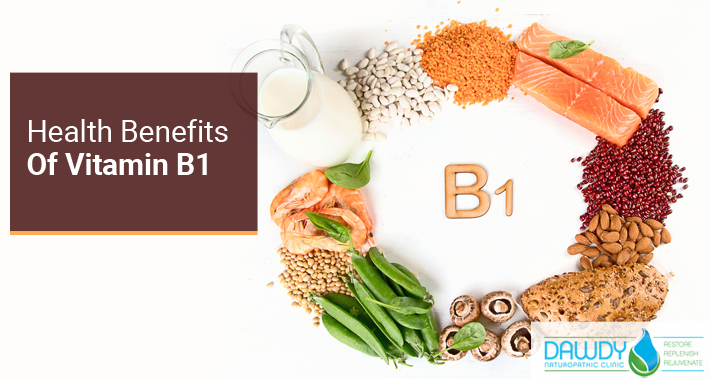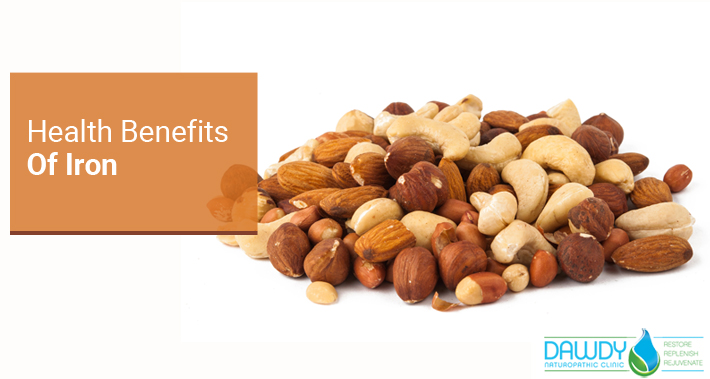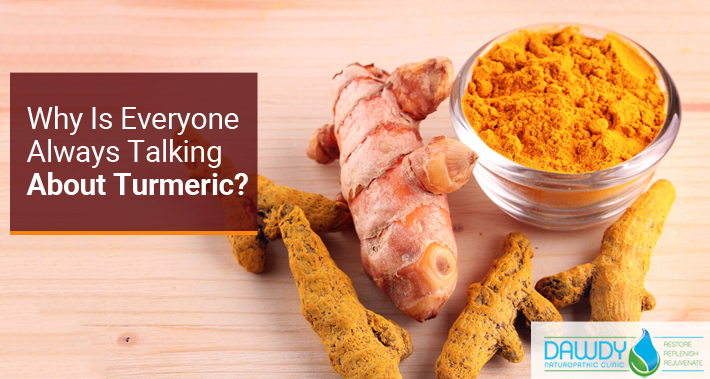Health Benefits Of Vitamin B1
Often overlooked among the variety of vitamins and minerals, vitamin B1, also known as thiamine, plays a crucial role in maintaining your body’s health.
From converting food into energy, to supporting your nervous system, vitamin B1 contributes a great deal to your overall well being.
I’m Dr. Kimberly Dawdy, ND, and here at my naturopathic clinic in Ottawa, the subject of vitamins and nutrients frequently comes up.
That’s why we’re exploring each nutrient, one by one, as part of this ongoing series.
So far we’ve looked at vitamin A, calcium, vitamin C, vitamin D, vitamin E, and omega 3 fatty acids.
This time, it’s thiamine’s time.
(say that five times fast!)
Let’s take a dive together into thiamine.
What Is Thiamine?
Thiamine is a water soluble vitamin and belongs to the family of B complex vitamins.
It plays a crucial role in converting the carbohydrates that we eat into usable energy, making it essential in your energy metabolism.
Since your body cannot produce thiamine on its own, it must be obtained either through a balanced diet or supplements.
That’s what the “essential” part of essential nutrient means, by the way.
As in, it’s essential for you to have these nutrients in your diet, because your body can’t synthesize them on its own.
What Are The Benefits Of Thiamine?
Thiamine offers a variety of health benefits that are often underestimated, but undoubtedly significant for your overall health.
Let’s take a look at some of the major benefits of thiamine.
1. Your Body Uses It To Convert Food Into Fuel
Thiamine plays a key role in converting food into fuel, which powers your body.
When you consume carbohydrates, proteins, and fats, your body needs to break them down into usable energy.
Thiamine helps your cells convert carbohydrates into glucose, and transforms the glucose into a molecule called adenosine triphosphate (ATP).
ATP serves as the primary energy carrier in your cells.
Without enough thiamine, your body has a harder time with this process.
This can lead to decreased energy levels.
2. Your Brain Uses It To Stay Healthy
Your brain is an energy demanding organ that requires a constant supply of fuel to function properly.
By helping your body metabolize carbohydrates, thiamine helps make sure it gets that fuel.
The metabolism of glucose serves as the primary energy source for your brain.
This process is important for memory retention, concentration, mental clarity, and overall cognitive function.
Thiamine also helps with neurotransmitter synthesis, which is essential for nerve signal transmission and communication with brain cells.
Furthermore, thiamine helps protect your brain cells against oxidative damage and reduces the risk of developing neurodegenerative conditions.
3. It’s Good For Your Metabolism
Thiamine is actively involved in various metabolic pathways.
As mentioned earlier, thiamine helps convert carbohydrates, proteins, and fats, into a usable form of energy.
This is called aerobic metabolism, which ensures a steady supply of energy to power your daily activities and bodily functions.
Thiamine is also instrumental in maintaining a healthy glucose metabolism, preventing spikes and crashes of blood sugar levels.
In addition, thiamine is essential for metabolizing amino acids.
Amino acids are the building blocks of proteins and fatty acids, which are essential for cellular function.
4. It Can Reduce PMS Symptoms
PMS is a combination of different symptoms you may experience about a week before your menstrual cycle starts.
There is a wide variety of different symptoms, but they include mood swings, anxiety, irritability, headaches, breast tenderness, dry skin, low libido, and bloating.
For reasons that we don’t yet fully understand, people with higher thiamine levels, as well as higher riboflavin (vitamin B2) levels, tend to be less likely to experience PMS.
5. It Keeps Your Eyes Healthy
Thiamine helps protect your eyes from oxidative damage caused by free radicals, such as pollution or harmful UV rays.
This reduces the risk of age related macular degenerative diseases and cataracts.
Thiamine also supports the proper functioning of the optic nerve for transmitting visual information from the eyes to the brain.
What Foods Are High In Thiamine?
Because your body cannot store B vitamins, it’s important to include them in your diet daily.
Here are some thiamine rich foods to incorporate into your diet:
- Legumes
- Whole grains
- Nuts and seeds
- Lean meats
- Fish
- Foods fortified with thiamine
What Does Thiamine Deficiency Look Like?
It’s easy to miss the signs of thiamine deficiency because they can be vague and vary by person.
It’s also fairly rare in this part of the world, thanks to so many foods being fortified with it.
Thiamine deficiency is mostly associated with a diet lacking in thiamine rich foods or chronic alcohol consumption, which can interfere with thiamine absorption.
Early signs of thiamine deficiency may include:
- Loss of appetite
- Fatigue
- Irritability
- Unexpected weight loss
- Muscle cramps
Neurological symptoms may also appear as the deficiency progresses, such as difficulty walking, tingling or numbness in your arms and legs, and decreased reflexes.
The advanced form of thiamine deficiency can cause a condition called beriberi.
There are two types of beriberi.
Wet beriberi is considered as medical emergency as it affects your cardiovascular system, leading to rapid heart rate, leg swelling, and even heart failure.
Dry beriberi affects primarily your nervous system, resulting in muscle weakness and difficulty coordinating movements.
In extreme cases, severe thiamine deficiency can lead to Wernicke Korsakoff syndrome.
This involves brain damage and includes symptoms of delirium, confusion, hallucinations, and memory loss.
But again, thiamine deficiency here in Canada is rare.
If you’re experiencing these symptoms, it may be a thiamine deficiency, or it may be related to another health disorder.
Either way, book an appointment here at Dawdy Naturopathic as soon as possible – we’ll take care of you.
Can You Overdose On Thiamine?
Thiamine is a water soluble vitamin.
That means your body uses whatever it can, and gets rid of the rest in your urine.
As a result, the risk of thiamine overdose is very low.
Unlike fat soluble vitamins which accumulate in the body and can lead to toxicity, water soluble vitamins are generally considered safe even at higher dosage.
However, if you do take too much, you may end up with digestive issues.
Should You Take Thiamine Supplements?
Thiamine supplements are generally unnecessary if you eat a healthy and varied diet.
However, if you have certain medical conditions or lifestyle factors, you may benefit from taking thiamine supplements.
For instance, if you have a restricted diet, malabsorption issues, or excessive alcohol use, you may find it beneficial to take thiamine supplements to meet the daily requirements.
If you’re considering supplementing, though, talk to me first.
Book Your Appointment With Dawdy Naturopathic Today
Vitamin B1, also known as thiamine, plays a vital role in supporting our overall health and well being.
If you suspect a deficiency or have specific health concerns that may require additional thiamine supplementation, I’m here to help.
I’m Dr. Kimberly Dawdy, ND, and I can provide personalized assessments and recommendations to meet your unique health needs.
Take the first step toward optimizing your vitamin B1 levels and achieve a healthier, more vibrant life.
Book your appointment with Dr. Kimberly Dawdy, ND, today.
Yours in Health,
Dr. Kimberly Dawdy, ND
Dawdy Naturopathic Clinic
6899 Sunset Blvd,
Greely, ON K4P 1C5
-https://g.page/dawdynaturopathicclinic
Dawdy Naturopathic Clinic offers a variety of naturopathic health solutions for individuals and families in Ottawa and the surrounding area.





